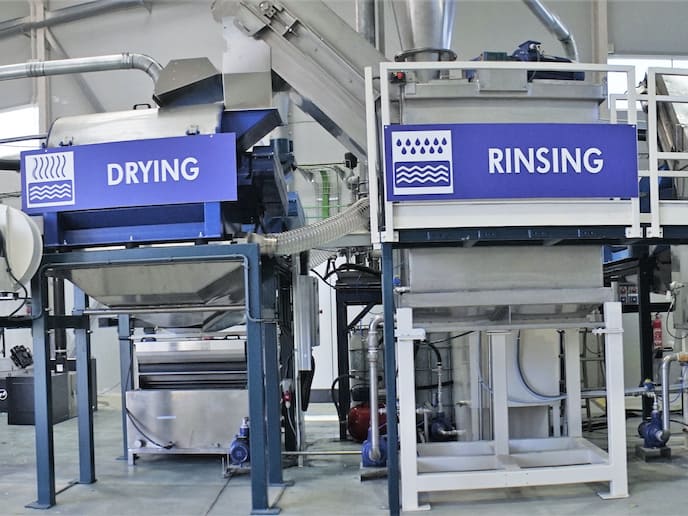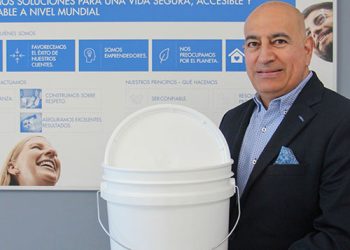Innovative de-inking technology could lead to more recycled plastic entering the market. This could help businesses achieve cost-efficiencies and reduce the environmental burden of plastic waste.
We currently produce about 300 million tonnes of plastic waste globally every year. Despite growing consumer awareness, government pressure and technological innovation, a great deal of this waste ends up in landfill or leaks into the ocean. One reason for this is that recycling plastic destined for food applications remains a challenge. “There are two main groups of consumer plastic,” explains PLASTDEINK project coordinator Rafael García, CEO of Cadel Deinking in Spain. “The first, polyethylene, is often used for packaging food items such as sliced meat and frozen goods. The second group, PET, is used extensively in soft drink bottles.” García notes that while the melting point of PET is 240 degrees Celsius, the melting point of polyethylene is around 100 degrees Celsius. This makes it easier to recycle PET for food and beverage applications, as the higher temperature kills any contamination. “Recycling polyethylene at this temperature is not possible as it would degrade the material,” says García. “The lower temperature however means that the risk of not removing all contamination is higher. This material therefore cannot always be used in food contact applications.”
Recycling, not downcycling
As a result, polyethylene is – at best – downcycled to make rubbish bags, which of course then get thrown out. “If we cannot find ways of removing contamination and recycling this material properly, then we cannot become a truly circular economy,” adds García. The objective of the PLASTDEINK project was to develop and demonstrate recycling technology that increases the recyclability of polyethylene. This was achieved by focusing on removing ink. “Food packaging has two key functions – to protect, and to inform,” García notes. “Information on what is contained in the packet is always done with ink, which is why de-inking is so important.” The project enabled García and his team to develop water-based technology capable of removing the ink without damaging the plastic. “Ink has a certain level of adhesion,” he explains. “We found a way of breaking this adhesive force, to leave behind unprinted, recyclable film.” The next stage was to scale the technology up to a pilot demonstration plant. “One thing that has never changed in human history is that seeing is believing,” says García. “Packaging and recycling companies really wanted to see the technology for themselves.”
True circular economy
The company continues to receive weekly visits to their pilot plant in Alicante. “We have been able to show that our recycling method is 45 % cheaper than using virgin plastic,” García highlights. “We recently signed a cooperation agreement with a market leading recycling company, which wants to add this de-inking technology to their portfolio.” García notes that this technology is a first step forward towards achieving true circularity in the polyethylene market. While ink is a major contaminant, other contaminants may also need to be removed before the plastic can be reused in food or other consumer applications. Recycled materials used in contact with food must be assessed for safety by the European Food Safety Authority, and authorised by the European Commission. “The ultimate objective is to decontaminate plastic so that it can be reused safely for the same application,” he concludes. “The results so far have been very positive, and we are certainly moving in this direction as an industry. We like to say that this challenge might be difficult, but it is not impossible!”
Packaging 360 is a comprehensive knowledge sharing ecosystem for the Indian packaging industry. Our services include an online content platform to deliver news, insights and case studies; organising conferences seminars and customised training; Providing Bespoke Project Consulting, Market Research and Intelligence.







